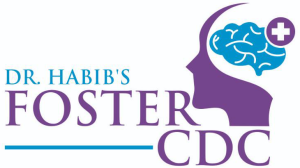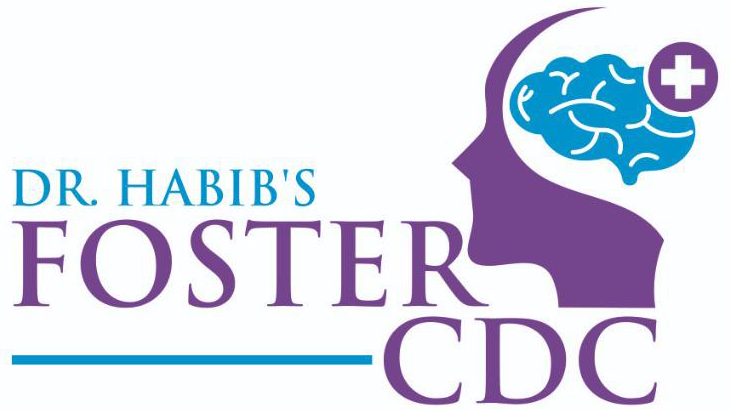Many people have this question: What is the best dyslexia treatment or is there any permanent cure for dyslexia? Prior to answering this question, let us first understand dyslexia.
Dyslexia is a learning disorder associated with reading due to difficulties in making out sounds and understanding how they are related to letters and words. It is a language-based processing difficulty (decoding disability) that affect language processing area of the brain.
Dyslexia is a neurological problem due to brain abnormality. If the defect is not detected and evaluated early – the problem can remain lifelong. Dyslexia can be managed with special instructions and support to ensure better outcomes in the long-run.
Learning areas affected by dyslexia
The learning areas that are affected by this disability include reading fluency, comprehension, spelling, writing, recall, speech and decoding language. Sometimes, dyslexia can co-exist with other learning disabilities as well.
Signs and Symptoms of Dyslexia – A dyslexic child has the following signs and symptoms:
- Substitute one letter for another
- Changes the order of the letter
- Shows decoding errors
- Exhibits painful and slow reading
- Substitutes one word for another
- Exhibits difficulty in decoding real words compare to other words
- Exhibits difficulty with processing maths information and computations
- Exhibits a huge difference between reading comprehension and listening comprehension of a text
- Dyslexia is also known as a language-based learning difficulty. The vision and intelligence of children suffering from dyslexia are normal.
- A dyslexic child, in general, shows difficulties with recalling known words, spelling and written language.
Early Detection leads to Successful Outcomes
When parents notice any abnormality in their child and bring it to the notice of their child doctor – the problem can be detected and diagnosed early paving the way for successful outcomes.
A successful outcome for a dyslexic child mostly depends on early intervention, diagnosis, evaluation and understanding of the specific needs of the child. The treatment plan for dyslexia is thus customised according to a specific goal and individual requirement of the child.
Special educators, trainers, teachers, psychologists and paediatric neurologists, child psychologists and language trainers adopt special and child-specific educational and teaching methodologies, approaches and techniques to help make the child learn according to their specific learning needs.
Early Intervention is Important
The irony with most of the dyslexic children is that they don’t get proper learning intervention and help until higher grades making their learning, reading and other skills development quite difficult. Thus, they are at increased risk of lagging behind both academically and professionally compare to their counterparts.
Reading is a nightmare for many dyslexic kids as they never feel comfortable reading. However, this reading challenge can be overcome provided the child has been imparted with the special learning skills in the lower grade itself.
Educational techniques
The problem with the children having dyslexia is that they process the information differently. Therefore, psychological testing helps in formulating a better and appropriate teaching program. The sooner the parents intervene, present it to their doctor and teachers is the better.
Teachers may use techniques involving hearing, vision and touch to improve reading skills. Helping a child use several senses to learn — for example, listening to a taped lesson and tracing with a finger the shape of the letters used and the words spoken — can help in processing the information.
Parents’ Responsibility
A dyslexic child needs utmost care, support and involvement of his or her parents in the activities at school and at home. Therefore, if your child is dyslexic, then:
Support your child: Your emotional support and love are important for your child as he or she may feel low due to learning and reading disability. Encouragement in every aspect of work also acts as a positive reinforcement. Parents should praise and encourage their child for the strengths and talents they have.
Be expressive and vocal with your child and explain to him or her about the condition. When a child understands his problem better, then he or she will be in a position to learn ways to manage his or her disability.
Take initiative and proper measures for ensuring learning at home. A good, well-organized, quiet, clean and neat ambience helps your child in engaging in studies. Allocate a study time-table. In addition, provide hygienic, nutritious and healthy food and ensure proper rest time as well.
Don’t let your child play with a smartphone and watch TV – instead, divert him or her to a more engaging activity like reading and writing practice.
Be involved with your child and don’t miss any chance of interacting with your child’s teacher. It is good if you can frequently get in touch with your child’s teachers at school to know whether your child is on track, following his or her teachers; taking on the tests and so on.
You can become a part of any support group. This can give you a good platform wherein you can meet and get in touch with the parents whose children face similar learning difficulties. In this way, you can get emotional support and some useful information. You can get to know about any support group from your healthcare provider or your child’s special education teacher.
Bottom Line
Whether it is a learning disability or learning problem, it is always better to consult a specialist doctor to rule out the cause and seek appropriate dyslexia treatment. Early intervention, diagnosis and evaluation help in determining the specific needs of your child for appropriate improvement and success.


